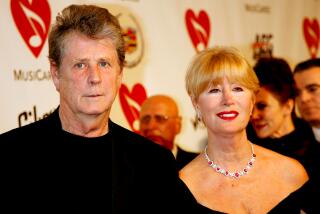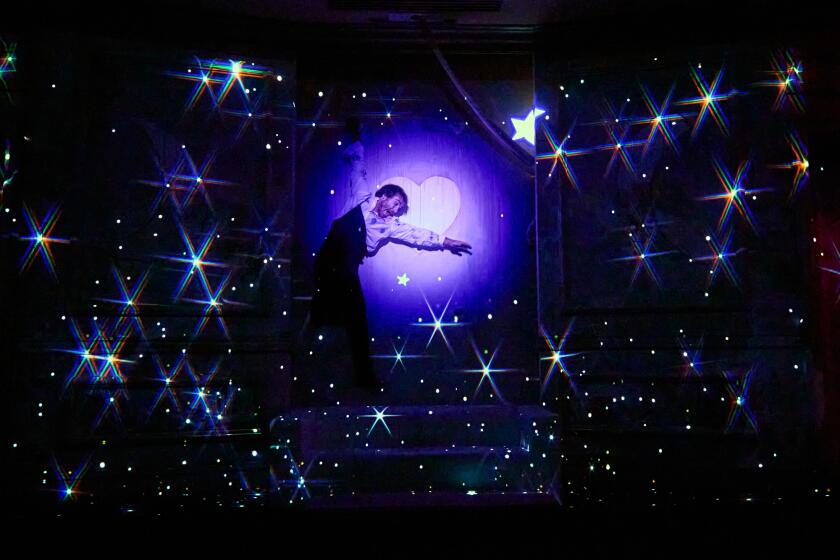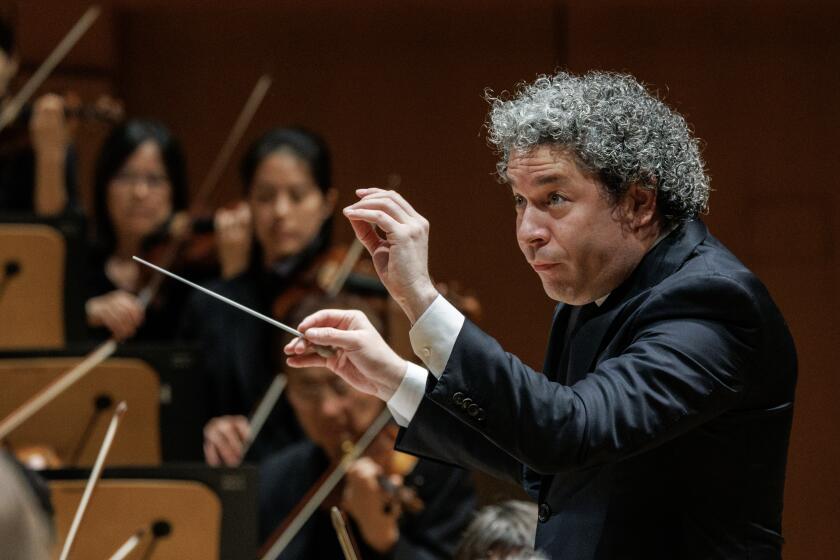Spirited concert kicks off a celebration of Fleisher’s triumphs
Having risen like a phoenix back into the classical mainstream, pianist Leon Fleisher was ready to move on to new projects, like the cycle of Schubert violin/piano sonatas that he is performing with violinist Jaime Laredo.
Yet Fleisher’s 35-year-long battle to regain use of his right hand is a compelling story that will not let go -- and his all-Schubert concert at UCLA on Saturday night collided with a mass-media celebration of his triumph.
Nathaniel Kahn’s documentary short about Fleisher, “Two Hands,” was nominated for an Oscar, so in order for Fleisher to attend Sunday’s ceremonies, the concert had to be moved up a day and across the campus from Royce Hall (which was booked Saturday) to Schoenberg Hall. Then, for good measure, the film was screened in the hall right after the concert, revealing a wry, refreshingly human Fleisher who realizes that his struggle with focal dystonia is not over and will never be over, but has been made manageable with the miraculous aid of Botox.
The move to the smaller hall was a plus in disguise, sacrificing seating capacity for a heightened intimacy that was appropriate for this music.
The first three of the four sonatas, written when Schubert was 19, were designated as “sonatinas” by their original publisher -- understandably, for their modest technical requirements are geared for amateur use. Occasionally, pieces of Schubert’s developing personality leak through -- especially in the third and fourth movements of the Sonata in A minor -- but usually, the style sounds generic, locked into the formulas of the 18th century. The fourth sonata in A, subtitled “Grand Duo” (all things being relative), requires more technique, but not much more; the Schubertian flavor is clearer yet still not dominant.
In other words, this is not prime-time Schubert. Having said that, though, it’s great to report that Fleisher and Laredo struck the right balance of making the music on the page come alive without inflating it into something grander than it is.
Looking imperturbable and relaxed, Fleisher added just enough expression to key phrases: little swells in volume, a songful quality to a good tune, a touch of Haydn-like wit at certain cadences. The afflicted fourth and fifth fingers on his right hand remain in curled positions, but they didn’t seem to hinder his ability to make music. Laredo’s tone ripened as the evening progressed, and he could provide jolts of raw-boned energy. There was a simplicity and purity about their music-making that was very appealing -- the antithesis of the self-important Oscar pageant the following night.
More to Read
The biggest entertainment stories
Get our big stories about Hollywood, film, television, music, arts, culture and more right in your inbox as soon as they publish.
You may occasionally receive promotional content from the Los Angeles Times.






